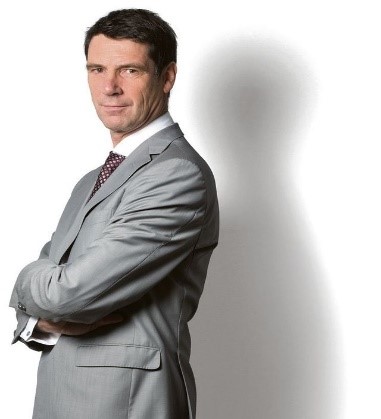Professor Teulings: NRC column on the US election
So it is Trump!
NRC, 9-11-2016

I cannot wait any longer, the closing time of the newspaper approaching. During my last view at the news sites, I saw Pennsylvania changing colors from gray to red. That is it. Brexit, I had expected more or less, this I had not. We are witnessing the end of an era. The country that won the cold war will be led from today by an admirer of Putin, the man who despises democracy and wants to restore to Soviet Union it to its former glory. This dramatic outcome make the question even more acute as to what explains the rise of populism in the Western world. A beginning of an answer can be found six campaigns back, in the victory of Bill Clinton. The analysis at the time was simple. "It's the economy, stupid"
In a previous column about popularity of Trump and the aversion of free trade, I described the research of David Autor, an MIT economist. Based on the outcomes of congressional elections by district, he shows that the support for the views of either Trump or Sanders can be well explained by the local job losses due to competition from China. This diagnosis led to many reactions: too much of an economist's view, was the response. However, the important role of economic crises in the electoral survival of incumbent governments is of all times. Two Dutch economists, Arthur Schram en Arthur van Riel, have shown in a splendid paper how the election of Hitler in the thirties was the direct consequences of the Great Depression. They too used regional differences in election outcomes to show that it is precisely in those regions where unemployment had risen the strongest the support for Hitler was greatest. After a crisis, voters wants something new. The decline in unemployment after his coup in 1933, explains why he could remain in power. We know the consequences.
In his wonderful book The Hall of Mirrors from 2015, the economic-historian Barry Eichengreen compares the Great Depression to the Great Recession after the collapse of Lehman. The Hall of Mirrors in the Palace of Versailles is a reference to the place where the First World War has officially ended and where the Second World War unofficially began. Eichengreen examines in his book how the lessons drawn by the world from the Great Depression have shaped the policy response to the Great Recession. (As an aside: Ben Bernanke, then chairman of the Fed, had built his reputation as professor economics with research on the Great Depression. That was useful.) Eichengreen's concluded that the main mistakes of the thirties were avoided by that experience: banks were saved, the world has not collapsed, and the democratic system has survived. After today, you may to wonder whether Eichengreen's claim has not been premature.





